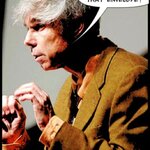
If you are going to use 'entanglement' to teleport quantum information on a practical scale, it needs to be worked out how entanglement could be 'recycled' to increase the efficiency of these connections.
Writing in
Physical Review Letters , a group has done just that - mathematically. They have
also devised a generalized form of teleportation, which allows for a wide variety of potential applications in quantum physics.
Long a staple of science-fiction, teleportation became a 'it might work in principle' idea in 1993, when theoretical physicists calculated that teleportation could…




